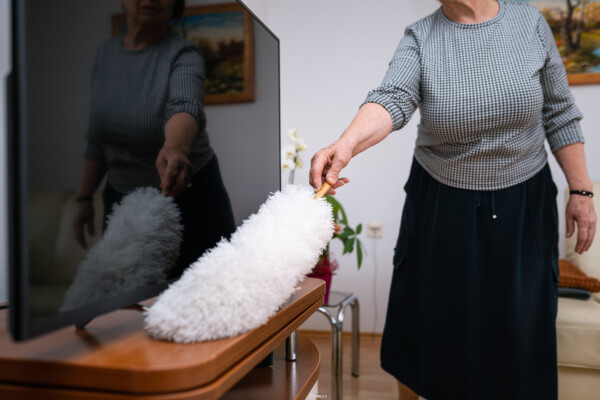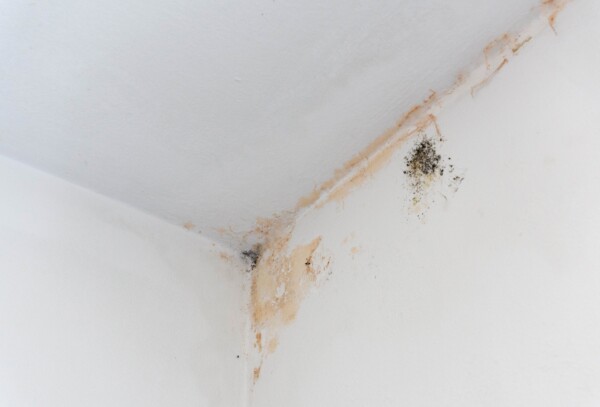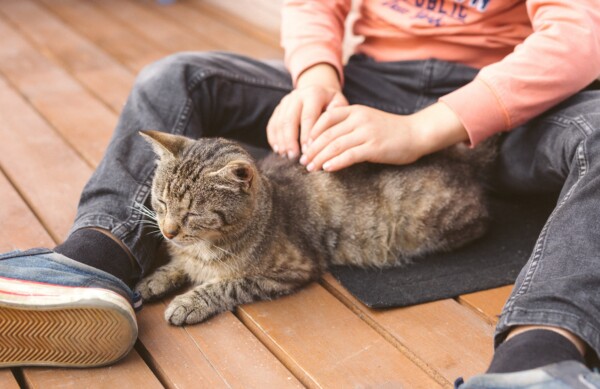Household triggers & asthma
People with asthma need to be more aware of what triggers their asthma within the home, including pets, dust and dust mites, mould, smoke, and cleaning products.
In winter, people spend up to 90% of their days inside on average. Research has shown that indoor air can be up to five times more polluted than the air outside. For people with asthma, indoor air has a material impact on health and quality of life.
People with asthma should be aware of what could trigger their asthma within the home. Triggers may include the family pet, dust and dust mites, mould, smoke, and cleaning products.
Below are some tips on some common household triggers of asthma:
House dust mites

House dust mites are very small creatures which survive by eating the dead skin shed by humans. They can be found in every home, regardless of cleanliness and it’s impossible to get rid of them completely. House dust mites live in carpets and furniture, especially beds. For some people, exposure to house dust mites can cause an allergic response in their airways.
Signs of dust mite allergy include wheezing when you’re vacuuming, dust, or enter a dusty room or house, and asthma symptoms either at night or first thing in the morning.
What to do if you think you might be allergic to house dust mites:
- Use complete barrier covering systems on your mattress, duvet and pillow.
- Remove all carpets and replace with hard flooring if possible.
- Vacuum all areas frequently: It is advisable to use a vacuum with a HEPA filter and which has good suction. The HEPA filter makes the vacuum more effective at picking up house dust mites and don’t scatter dust.
- Surfaces should be damp dusted or cleaned with an attachment on your vacuum cleaner.
- Keep soft toys to a minimum and wash at 60 degrees on a weekly or fortnightly basis.
- Hot wash sheets, duvet and pillowcases at 60 degrees once per week.
Moulds and fungal pores

Moulds grow in damp areas and release tiny seeds or spores into the air. These spores may trigger asthma symptoms in some people. Mould spores can be found in any damp place from kitchens and bathrooms to piles of damp clothes or leaves in the garden.
What to do if you think mould might be a trigger for your asthma:
Make sure your home is well ventilated.
Remove mould or mildew from walls, shower curtains etc regularly.
Air clothes and wardrobes regularly.
Avoid contact with spores from rotting vegetation (e.g. compost and leaf mould).
Be aware that mowing the lawn may disturb pollen and mould spores.
Investigate thoroughly before installing any air conditioning systems as not all types may be suitable for people with asthma.
Make sure you have a vacuum with a HEPA filter. This type of filter is effective against the tiny pollen and fungal spores. Vacuums with HEPA filters are available across a selection of brands and price ranges.
Pets

Complete avoidance of pet allergens is impossible as the allergens will be everywhere within the home, as well as in many outside environments. Moving pets outside the home is recommended if possible, but it can take months for allergen levels to decrease.
Cats are a major source of indoor allergen. This is because the allergens they tend to produce can stay in the house for long periods of time. This makes cats a poor choice for families with members who have allergies or asthma that is triggered by pet hair. Other pets can produce less serious allergens. However dogs, rabbits, guinea pigs and mice are all known to be a problem for some people.
What to do if you think you might be allergic to your pets:
- If you are allergic to certain pets, rehome the pet if possible
- Keep pets away from living areas
- Keep pets away from fabric-covered furniture, rugs and carpets
- Ensure your pet is properly washed by someone without an allergy
- Vacuum regularly using a vacuum suitable for pet hair
Smoke
- Don’t smoke or allow others to smoke in your home
- Open fires are dangerous for people with asthma – consider having a more asthma friendly heating arrangement like a sealed stove
- Ensure your chimney is cleaned to allow steady flow of smoke
Gas cookers and appliances
- Ensure that the kitchen is ventilated
- Use an extraction fan when cooking
- Maintain gas appliances and ensure they are serviced regularly
- Have a carbon monoxide alarm installed in your home
Cleaning Products
- Use warm water for cleaning, where possible
- Choose solid/liquid cleaners over spray cleaners
- Use cleaning products that are labelled allergy friendly or stick to the traditional vinegar, baking soda, or lemon and ensure the work area is well ventilated
